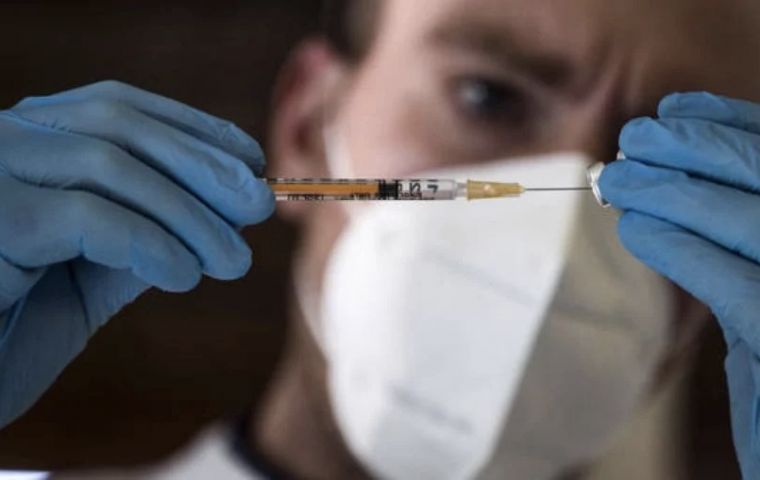MercoPress. South Atlantic News Agency
Brazilian health authorities report increase in number of cases of monkeypox
 The Butantan Institute has advised travelers and residents of endemic countries to avoid contact with sick animals
The Butantan Institute has advised travelers and residents of endemic countries to avoid contact with sick animals Brazilian health authorities said this weekend that the State of São Paulo had recorded over 500 cases of monkeypox, most of them in the City of São Paulo (442 of the total 538). The first infection was registered in the state on June 9.
In this scenario, government officials were reported to be evaluating the possible purchase of vaccines against the malady, or also developing the drug locally.
The Health Ministry said in a statement that all patients were evolving well and that City Council officials were monitoring the cases. “Transmission occurs between people” and does not involve apes, authorities highlighted. The state government was evaluating the purchase and production of vaccines to contain the advance of the disease, it was reported.
Brazil has 696 confirmed cases of the disease while 336 others were being investigated, according to data released Friday by the federal Ministry of Health, while the World Health Organization (WHO) speaks of over 16,000 infections globally, upon declaring the public health emergency, a measure aimed at securing more resources to fight the spread of the malady.
One of the main problems in the fight against monkeypox was its underreporting, due to the variety of manifestations the disease has been known to have. With the incubation period of the virus varying from 5 to 21 days, the first symptoms usually include fever, a sore throat, headache, and body aches, which in some cases lead to suspecting a respiratory virus), and swollen glands.
A few days later, lesions appear on the skin, with small rashes that can spread to the fingers, hands, arms, neck, back, chest, and legs.
According to the WHO, men who have sex with men account for 98% of the cases, although other people can become infected as well.
Last Friday, the European Medicines Agency (EMA) announced it will use the smallpox vaccine to immunize people against monkeypox, a decision which was based on the similarity between the viruses.
The first European case was confirmed May 7 in an individual who returned to England from Nigeria, where monkeypox is endemic. Since then, countries in Europe, as well as the United States, Canada, and Australia, have confirmed cases.
First identified in monkeys, the viral disease is usually spread by close contact and occurs mainly in West and Central Africa. It has rarely spread elsewhere, so this new wave of cases outside the continent causes concern. There are two main strains: the Congo strain, which is more severe, with up to 10% mortality, and the West African strain, which has a mortality rate of about 1%.
The virus can be transmitted through contact with skin lesions and droplets from an infected person, as well as through shared objects such as bedding and towels.
According to São Paulo's prestigious Butantan Institute, among the protective measures, authorities advise travelers and residents of endemic countries to avoid contact with sick animals (alive or dead) that may harbor the monkeypox virus (rodents, marsupials, and primates). Hand hygiene with soap and water or alcohol are important tools to avoid exposure to the virus, in addition to contact with infected people, Butantan also noted.
Health authorities in the state of Pernambuco announced two more cases were under investigation during the weekend, both men. One of them had a travel history to a place with virus circulation and the other had admitted to being in contact with another suspected case. One of the patients is hospitalized in a private health unit and the other is in isolation at home.




Top Comments
Disclaimer & comment rulesCommenting for this story is now closed.
If you have a Facebook account, become a fan and comment on our Facebook Page!